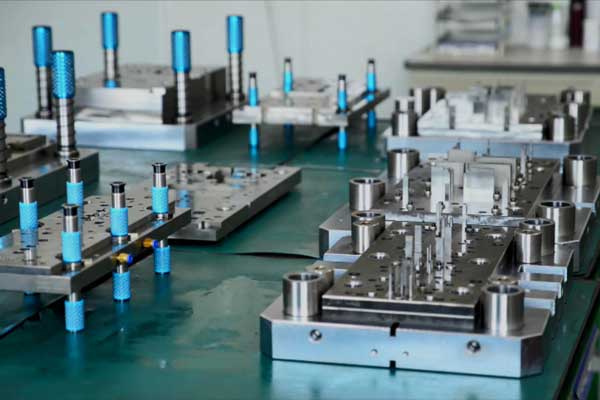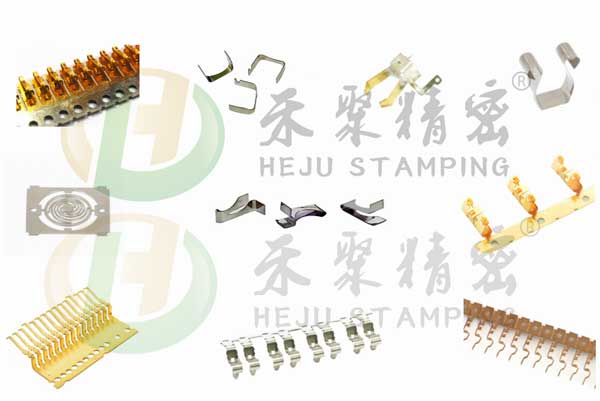Why the Manufacturing Process of Precision Spring Contacts is Complex?
Precision spring contacts are a widely used metal stamping parts. Its process complexity and precision requirements are higher than ordinary metal stamping parts. The following will introduce a precision stamping part that seems simple but is actually very difficult to produce – precision spring contacts.
Precision spring contacts are an elastic metal part used in many fields, such as precision instruments, electronics, and other equipment. Although precision electrical contacts generally have a simple appearance, their manufacturing process requires highly precise operation and control, so the requirements for the stamping process are very strict.
Choose Correct Raw Material for Precision Spring Electrical Contacts
First, it is very important to choose the correct material. Precision spring contacts need to have a certain strength and elasticity, so high-strength stainless steel is usually used. However, the stamping performance of this type of material is poor and prone to cracks and deformation, so this also places certain requirements on the company’s productivity, technical capabilities, and the life of the mold.
Precision Design of Stamping Dies
Secondly, the stamping die’s design needs to be very precise. Due to the smaller size of the precision spring contacts, higher precision is required in the design and manufacturing of the mold. At the same time, since the elastic pieces need to have high-strength elasticity, the deformation characteristics of the material need to be taken into consideration when designing the stamping tooling to ensure that the stamped elastic pieces can achieve the expected elastic properties.
Processing of Progressive Stamping Dies
Next is mold processing. The accuracy and surface finish of mold processing has an important impact on the quality of the final spring contacts. Generally speaking, CNC machining is performed first, followed by finishing and polishing to ensure the accuracy and smoothness of the mold surface. In the stamping process, the requirements for equipment are also very high. Due to the particularity of the spring shape, stamping equipment needs to have strong control capabilities to ensure that the strength, speed, and angle of each stamping can meet the design requirements.

More importantly, if the customer requires heat treatment, the subsequent heat treatment process will have a great impact on the performance of the spring contacts. The contact springs need to undergo annealing, quenching, and tempering processes to improve the strength and elasticity of the material while eliminating internal stress and preventing it from deforming and rupturing.
Quality Inspection of Spring Contacts
The last step is the quality inspection of the products. Since precision spring contacts have very high requirements for accuracy and elasticity, strict quality control must be carried out. The size, shape, material structure, and mechanical properties are usually tested to ensure that the products meet customer standards.
Summary
Although the appearance of precision spring contacts is simple, its manufacturing process requires multiple links such as material selection, mold design and manufacturing, stamping processing, surface treatment, and quality inspection. Each link requires strict requirements and high precision control. Only by achieving finesse and precision in every link can we finally produce high-quality precision spring contacts.

Dongguan Heju Precision Electronic Technology Co., Ltd. is a company specializing in the production of precision spring contacts. The company has a rich experienced technical team that is proficient in designing and manufacturing spring electrical contacts for various metal materials. They can also provide accurate and customized solutions. A series of imported production and testing equipment has been introduced to ensure that precise processing can be carried out according to customer needs, to meet customers’ individual needs while ensuring the high quality and excellent performance of the products.
